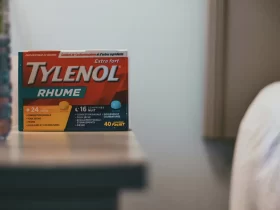By Dr. Hassan Kafri
As a cardiologist in Chula Vista, California, I’ve seen how powerful GLP-1 agonists like semaglutide (Ozempic, Wegovy) and tirzepatide (Mounjaro, Zepbound) can be for people struggling with obesity and heart problems. These medications not only help with significant weight loss but also reduce the risk of heart attacks and strokes by 20% in overweight and obese individuals who don’t have diabetes. They are essential tools for managing heart health. But there’s a big problem: these drugs are in such high demand that there’s a prolonged shortage. This makes it tough for patients and healthcare providers alike.
What Are Compounded GLP-1s?
Because of this shortage, some pharmacies are allowed to create alternatives to these drugs, known as compounded GLP-1s. While this might sound like a good solution, it has sparked a lot of debate among doctors and pharmacists.
Why Compounding Practices Matter?
Here’s the issue: not all compounding practices are safe. Some unregulated entities produce substandard or even fake versions of these drugs. The FDA has warned about these fraudulent products, often sold online with minimal oversight. These can be really dangerous for your health.

How to Find Safe Compounded Medications?
It’s crucial to know the difference between legitimate compounding pharmacies and those that are not. Certified compounding pharmacies, backed by organizations like the Alliance for Pharmacy Compounding (APC), follow strict federal and state regulations. They only give out medications if they have a valid prescription from a licensed healthcare provider, ensuring that the medication is safe and effective.
Risks of Unlicensed Compounded Medications:
You might accidentally buy ineffective or harmful products from unlicensed sources, especially if you’re looking for cheaper options online. This can seriously jeopardize your health. It’s important to get medications only from regulated and reputable providers to avoid these risks. Some people turn to unlicensed compounded drugs because they can’t get insurance to cover GLP-1 agonists. While these compounded medications might contain the active ingredient, they don’t always have the same effectiveness or safety profile as FDA-approved drugs.
Considering the Long-Term:
Here’s something else to think about: to get the long-term benefits of these medications, you often need to take them long-term. If you start with a compounded version and then can’t continue getting the medication in the future, you might have to stop treatment, which can reverse any progress you’ve made.
For example, I had a patient who started on compounded GLP-1 because their insurance wouldn’t cover the medication. They lost 25 pounds initially, which was fantastic. However, even the compounded version became too expensive over time, and they had to stop taking it. Not only did they regain the 25 pounds they lost, but they also gained an additional 15 pounds, going from 25 pounds lost to 40 pounds gained. As a result, their pre-diabetes progressed to full-blown diabetes. This highlights the importance of sustainable treatment options.
Exploring Other Options and Lifestyle Changes
Even with the GLP-1 shortage, there are other effective weight loss medications and treatments. Your treatment plan should include all possible options that fit your specific needs. And remember, managing obesity isn’t just about taking medication. It also involves lifestyle changes like eating a balanced diet and staying active.
Without significant changes to your eating and exercise habits, stopping GLP-1 medications can result in weight regain and potential worsening of health conditions. This means you might end up paying for compounded medications for years without achieving lasting results.
At Kafri Heart and Vascular Clinic, we work closely with Enara Health to offer comprehensive weight management programs. Enara Health creates personalized care plans that include medical supervision, nutritional guidance, and exercise counseling, helping our patients achieve their weight loss goals.
Conclusion
Addressing the GLP-1 shortage requires us to focus on patient safety and clear communication. By understanding the risks of unlicensed compounded medications and choosing regulated treatments, we can ensure you get the best care. Lifestyle changes and other available treatments also play a significant role in managing obesity and improving heart health. The shortage highlights the need for pharmaceutical companies to better manage the demand for these life-changing medications, preventing shortages and ensuring patient access to safe treatments. This proactive approach will help avoid the risks associated with unlicensed compounded drugs, ensuring you receive the highest standard of care. Together, we can make informed decisions and embrace healthier lifestyles.









































Leave a Reply